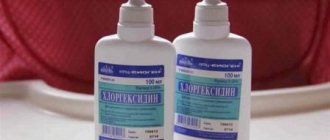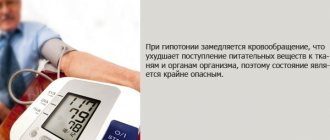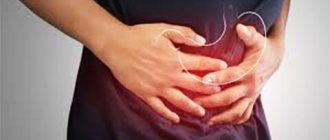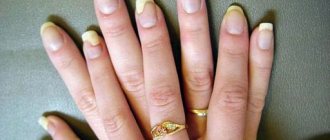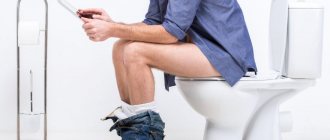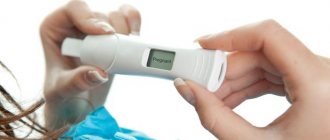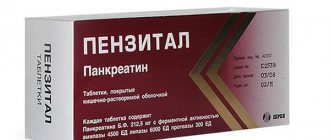Poisoning is a systemic damage to the body due to the ingestion of toxic substances. The poison can enter the body through the mouth, respiratory tract or skin. The following types of poisoning are distinguished:
- Food poisoning;
- Mushroom poisoning (separated into a separate group, as they differ from ordinary food poisoning);
- Drug poisoning;
- Poisoning with toxic chemicals (acids, alkalis, household chemicals, petroleum products);
- Alcohol poisoning;
- Poisoning with carbon monoxide, smoke, ammonia vapor, etc.
In case of poisoning, all functions of the body are affected, but the activity of the nervous, digestive and respiratory systems is most severely affected. The consequences of poisoning can be very serious; in severe cases, dysfunction of vital organs can lead to death, therefore first aid in case of poisoning is extremely important, and sometimes a person’s life depends on how timely and correctly it is provided.
General rules for first aid for poisoning
The principles of emergency assistance are as follows:
- Stop contact with the toxic substance;
- Remove the poison from the body as quickly as possible;
- Support the vital functions of the body, primarily respiratory and cardiac activity. If necessary, carry out resuscitation measures (closed cardiac massage, mouth-to-mouth or mouth-to-nose breathing);
- Call the victim a doctor, or in urgent cases, an ambulance.
It is important to establish exactly what caused the poisoning; this will help you quickly navigate the situation and effectively provide assistance.
Why is it coming?
Poisoning of the body is accompanied by symptoms that are associated with the removal of fluid from the body. This includes frequent diarrhea and vomiting, as well as elevated temperature, which also affects water and electrolyte balance. If sweating additionally occurs, this phenomenon also provokes the loss of a large amount of moisture from the tissues.
Important: With intense diarrhea, according to some estimates, more than 2 liters of water can be removed from the body. These are significant losses that must be replenished, but done correctly.
Food poisoning
Food poisoning is something that we most often encounter in everyday life; perhaps there is not a single adult who has not experienced this condition on himself. The cause of food poisoning is the ingestion of poor-quality food into the body; as a rule, we are talking about bacterial contamination.
Symptoms of food poisoning usually develop an hour or two after eating. These are nausea, vomiting, diarrhea, abdominal pain, headache. In severe cases, vomiting and diarrhea become intense and repeated, and general weakness appears.
First aid for food poisoning is as follows:
- Perform gastric lavage. To do this, give the victim at least one liter of water or a pale pink solution of potassium permanganate to drink, then induce vomiting by pressing two fingers on the root of the tongue. This must be done several times until the vomit consists of one liquid, without impurities;
- Give the victim an adsorbent. The most common and inexpensive is activated carbon. It should be taken at the rate of 1 tablet for every 10 kg of weight, so a person weighing 60 kg needs to take 6 tablets at once. In addition to activated carbon, the following are suitable: Polyphepan, Lignin, Diosmectite, Sorbex, Enterosgel, Smecta, etc.;
- If there is no diarrhea, which is rare, a bowel movement should be artificially induced; this can be done with an enema or by taking a saline laxative (magnesia, Carlsbad salt, etc. are suitable);
- Warm the victim - lay him down, wrap him in a blanket, give warm tea, you can apply a heating pad to his feet;
- Replenish fluid loss by giving the patient plenty of fluids - lightly salted water, unsweetened tea.
General principles of treatment of food poisoning and differences from the treatment of intestinal infections
Mild food poisoning in general, especially those that often occur in everyday life, are not considered serious diseases. Even without treatment, such conditions resolve on their own within 1-3 days. Main areas of treatment:
- elimination of intoxication and rapid removal of toxins from the body;
- prevention of dehydration (symptoms);
- restoration of intestinal biocenosis;
- restoration of gastrointestinal tract activity through a gentle diet.
The fundamental difference in the treatment of intestinal infections is the often prescribed etiotropic treatment to destroy the causative agent of the disease that is actively reproducing in the body (antibiotics or antiviral drugs). In addition, treatment of intestinal infections (symptoms of dysentery, symptoms of salmonellosis, botulism, rotavirus, enterovirus - symptoms of intestinal flu, etc.) is a long process, often occurring only in a hospital setting.
Drug poisoning
If drug poisoning occurs, you must immediately call a doctor, and before his arrival, it is advisable to find out what the victim took and in what quantity. Signs of drug poisoning manifest themselves differently depending on the effect of the drug that caused the poisoning. Most often this is a lethargic or unconscious state, vomiting, lethargy, drooling, chills, pale skin, convulsions, and strange behavior.
If the victim is conscious, while waiting for the doctor to arrive, it is necessary to carry out the same emergency measures as for food poisoning. An unconscious patient should be placed on his side so that if he begins to vomit, he will not choke on the vomit, keep his pulse and breathing under control, and if they weaken, begin resuscitation measures.
Drug treatment of poisoning
In case of mild food poisoning, no specific treatment may be needed at all, the main thing is to drink more and follow a gentle diet. Let us remind you that only a doctor can adequately assess a person’s condition and determine the need and scope of treatment.
| Rehydration therapy (rehydrants) | When food poisoning is diagnosed, treatment with drugs from the group of rehydrants is the main one, since it leads to the restoration of electrolyte and water deficiency in the body. Therapy of this type can be oral and, in severe cases or when restoring fluid volume in young children, parenteral. Oral rehydration with special solutions can be carried out at home, since their use is simple and straightforward; moreover, oral rehydrants should always be in a traveler’s first aid kit. | |
Oral rehydration preparations
| Preparations for parenteral rehydration
| |
| Sorption therapy (enterosorbents) | Action | Main drugs: |
| Drugs from this group help to quickly remove toxins through adsorption. Their use is justified during the period of absence of vomiting, as well as in the two-hour interval between taking other medications. Sorption therapy is not carried out at high temperatures, and is prescribed with caution to young children and elderly patients. |
| |
| Analgesic therapy (antispasmodics) | These medications are indicated for significant pain symptoms accompanied by diarrhea and painful urge to defecate. |
|
| Antibacterial and antimicrobial therapy (antibiotics and antimicrobials) | These drugs are very rarely prescribed for food poisoning and are indicated for mixed poisoning. Unreasonable prescription of antibiotics and combined antimicrobial drugs aggravates the picture of dysbiosis that develops as a result of the disease. |
|
| Antiemetic and antidiarrheal therapy | Since both vomiting and diarrhea are protective reactions of the body, these, in this case, normal reactions of the body should not be forced. In extreme cases, when vomiting and diarrhea become indomitable, and the bulk of the toxin has already been released through vomit and feces, the following may be prescribed: |
|
| Antipyretic therapy (NSAIDs) | As a rule, in case of food poisoning, hyperthermia does not reach high numbers, but people who cannot tolerate elevated temperatures, as well as children, may be prescribed: |
|
| Microflora restoration therapy (pro- and eubiotics) | After food poisoning, the normal intestinal biocenosis is almost always disrupted. Therefore, during the recovery period, medications containing beneficial bacteria or their components are prescribed: |
|
Poisoning with acids and alkalis
Concentrated acids and alkalis are strong poisons, which, in addition to toxic effects, also cause burns at the site of contact. Since poisoning occurs when acid or alkali enters the body through the mouth, one of its signs is burns of the mouth and pharynx, and sometimes lips. First aid for poisoning with such substances includes washing the stomach with clean water. Contrary to popular belief, there is no need to try to inactivate the acid with alkali, and you should not induce vomiting without rinsing. After gastric lavage, in case of acid poisoning, you can give the victim milk or a little vegetable oil to drink.
First aid for skin contact with acids or alkalis
- If the chemical gets on your clothing, remove it immediately.
- Rinse the damaged area under running water for at least 10 minutes. The water should be warm.
- If acid gets on the skin, wash the damaged area with a weak alkali solution: 2% soda, lime water.
- If alkali gets in, rinse with a 2% solution of a weak acid - boric, citric, ascorbic, vinegar.
- In case of severe damage, apply a sterile bandage and consult a doctor.
- In case of contact with the mucous membranes of the eyes, rinse with water for 20–30 minutes and apply anti-inflammatory eye drops (sulfacyl sodium). If the poison is irritating, apply a bandage and consult an ophthalmologist.
Poisoning by volatile substances
Poisoning that occurs as a result of inhalation of toxic substances is considered one of the most severe types of intoxication, since the respiratory system is directly involved in the process, therefore, not only breathing suffers, but also toxic substances quickly penetrate the blood, causing damage to the entire body. Thus, the threat in this case is double - intoxication plus disruption of the breathing process. Therefore, the most important first aid measure for poisoning by volatile substances is to provide the victim with clean air.
A conscious person must be taken out into clean air and tight clothing loosened. If possible, rinse your mouth and throat with a soda solution (1 tablespoon per glass of water). If there is no consciousness, the victim should be placed with his head elevated and air flow should be ensured. It is necessary to check the pulse and breathing, and if they are abnormal, carry out resuscitation measures until cardiac and respiratory activity stabilizes or until an ambulance arrives.
How dangerous is dehydration?
A liquid environment is necessary for most vital processes in the body to occur. Its deficiency affects all functions at once, which is why a person almost immediately feels symptoms of dehydration. This includes dry mouth, weakness, thirst, decreased blood pressure, including to critical levels, increased temperature, rapid breathing, rare urination or a prolonged absence of urination. If measures are not taken and dehydration after poisoning and this process begins to develop, then the consequences for the body can be quite serious. Some of them include:
- Critical increase in temperature.
- Hypotension or low blood pressure.
- Dysfunction of the urinary system, in particular the kidneys. In especially severe cases, their failure is possible.
- Cramps, which not only cause discomfort, but also affect the functioning of internal organs, which consist of muscle fibers.
- Increased risk of thrombosis, the formation of which depends, among other things, on blood viscosity.
- Brain swelling.
Other negative consequences that develop against the background of dehydration are also possible, so it is important to stop this process by taking appropriate measures.
Mistakes in providing first aid for poisoning
Some measures taken as emergency aid in case of poisoning, instead of alleviating the condition of the victim, can cause additional harm to him. Therefore, you should know common mistakes and avoid making them.
So, when providing emergency assistance for poisoning, you should not:
- Give sparkling water to drink;
- Induce vomiting in pregnant women, unconscious victims, or in the presence of convulsions;
- Try to give an antidote yourself (for example, neutralize an acid with an alkali);
- Give laxatives in case of poisoning with acids, alkalis, household chemicals and petroleum products.
For all types of poisoning, it is necessary to call an ambulance, because Poisoning almost always requires hospitalization. The only exceptions are mild cases of food poisoning, which can be treated at home.
Causes
Poisoning occurs due to eating dishes prepared from low-quality products. Unwashed vegetables and fruits, poor heat treatment of meat, dirty hands of a cook, waiter, or seller provoke rapid intoxication. Dishes that have not received heat treatment and have been stored in the refrigerator for a long time are at risk. Food intoxication can appear after a couple of hours.
The second cause of nausea and vomiting is the consumption of poisonous berries and mushrooms. Appears after 4-12 hours.
The reasons are specific. Symptoms of food intoxication and toxic infection vary.
Reception of sorbents
After cleansing the stomach, it is recommended that a person be given any sorbent. Such medications absorb the remaining toxic compounds from the stomach and intestines and help eliminate them. What medications are acceptable to take and what to drink if you have alcohol poisoning?
Allowed:
- Activated carbon. The medicine is used and known. How to take activated carbon in case of poisoning? The amount is calculated depending on the patient’s body weight. Take one tablet per 10 kg of weight. Drink once a day, treatment lasts up to ten days.
- Polysorb. Sold in powder form in bottles or sachets. It is recommended to drink according to the instructions for five days. In case of severe intoxication, it is allowed to use liquid to cleanse the stomach.
- Filtrum (Lactofiltrum). It is commercially available in tablet form. The medicine quickly rids the body of poisons and breakdown products of alcohol and medications. How to take filtrum or lactofiltrum in case of poisoning? In adults, the recommended amount is three capsules three times a day. In children, the dosage varies from one to two tablets depending on age. Drink with plenty of water.
- Enterosgel. A popular product containing methyl silicic acid. Available in paste and gel form. Penetrating into the stomach, the action quickly begins. Before use, the required amount of paste is dissolved in half a glass of water. The duration of treatment is up to five days. The dosage is described in the instructions for use. Young children are allowed to take the drug one teaspoon before meals.
Permitted sorbents also include Polyphepan, Smecta, and White Coal. You must carefully study the instructions for use; the drugs have contraindications. If used incorrectly, the risk of side effects cannot be excluded.
Folk remedies
Traditional medicine is used with caution and care. It is possible to get rid of poisoning with the help of medicinal plants.
What is allowed:
- Decoction of oak bark - one large spoon of raw material per glass of water. Boil for fifteen minutes, dilute with water before use. This medicine helps normalize intestinal function and restore mucous membranes.
- A shot of vodka with salt has an immediate effect. Unfortunately, the mechanism of action of this medicine has not been studied.
- Peppercorns will help with diarrhea. Take one pea per kilogram of weight. Drink with a small amount of water.
- A couple of tablespoons of marshmallow roots are poured with cold water and left to steep for about four hours. Drink up to four times a day.
It is recommended to pay special attention to nutrition. What can you eat and drink if you are poisoned? All products that provoke irritation of the mucous organs of the gastrointestinal tract are excluded from the diet. It is recommended to limit the consumption of spices, fried, smoked, and fatty foods.
Is it possible to use kefir for poisoning? Low-fat fermented milk products have a beneficial effect on the digestive system and help normalize microflora. Therefore, drinking kefir in case of poisoning is allowed, but not immediately after cleansing the toxin.
Consequences and prevention
Depending on the degree and type of intoxication, the consequences vary. Quite often, exacerbation of chronic diseases and impaired renal and liver function are diagnosed.
Preventive measures include compliance with safety precautions and careful attention to food products. It is better to buy food in trusted stores, take medications as directed by a specialist and follow the instructions.
What should you take if you are poisoned at home? It is allowed to use certain medications that alleviate the human condition and normalize the functionality of organs.
Read further:
Can pomegranate peels stop diarrhea?
How to use rehydron for dogs for vomiting and diarrhea - dosage
Which mineral water to choose in case of poisoning ✅ with food or alcohol
Which is better - filtrum or activated carbon?
How to take lactofiltrum correctly for acne, for weight loss, and for hangovers
Article rating:
Share with friends:
You may also be interested in:
How to get rid of dizziness due to food and alcohol poisoning.
Can children and adults eat crackers during poisoning?
How long does food poisoning last in adults and children?
Intestinal poisoning - recovery methods
Treatment with medications
In case of poisoning, medications must be used.
The drugs help get rid of the manifestations of intoxication, normalize the functioning of inflamed organs, and reduce the risk of developing negative consequences. What pills to take in case of intoxication?
Medicines:
- To restore intestinal microflora, it is recommended to use Hilak Forte, Linex, Bioflor.
- In case of poisoning with fever, it is allowed to take antipyretic drugs - paracetamol, ibuprofen.
- Antimicrobial and antiviral agents are prescribed by a specialist; it is better not to take them on your own.
All medications must be taken according to the instructions for use in order to avoid negative consequences and complications.
List of medications for poisoning and diarrhea
Restoring water-salt balance
Intense vomiting and diarrhea provoke dehydration of tissues and cells. The water-salt balance fails, the blood becomes thicker, and few nutrients reach the organs. This poses quite a serious health hazard. Therefore, at home, it is important to try to normalize the water-salt balance.
Methods:
- The use of special products - Regidron, Oralit and others. How to take Regidron? The medication is diluted with water - one sachet per liter of liquid.
- A saline solution will help restore the balance of salts and fluids in case of poisoning. It is recommended to drink a simple remedy - a small spoon of salt per liter of water. You can add a spoonful of soda and sugar to the solution.
- Is it possible to drink tea if poisoned? If you have no appetite and to avoid dehydration, you can drink green or black tea without sugar.
- What water to drink if poisoned? It is recommended to opt for clean boiled water and drink mineral water without gas.
- Rosehip decoction helps a lot.
All liquids - medicinal or not - must be drunk slowly, in small sips, so as not to provoke vomiting.
Medicines
Medicinal effects on the body that has suffered poisoning are not required in all situations: mild food intoxication only involves taking sorbents in order to quickly get rid of the remains of harmful substances. If the patient's condition is severe, stronger symptomatic medications may be needed, but it is advisable to select them with a doctor. Gastroenterologists use the following groups of drugs:
- Adsorbents (Enterosgel, Atoxil) - bind and remove toxins, are used to treat children and adults, but are not prescribed for fever. Be sure to space it out with other medications (for 1-2 hours).
- Rehydrants (Regidron, Acesol) - restore water and electrolyte balance, used for any poisoning. Administration is oral or infusion, depending on the patient’s condition.
- Painkillers (Drotaverine, Duspatalin) are antispasmodics that are taken only for severe acute pain that accompanies attacks of diarrhea.
- Antiemetics (Metoclopramide, Cerucal) - doctors call vomiting a natural defense reaction of the body that helps get rid of toxins, but if the attacks are too intense, it can be blocked with medications.
- Antidiarrheals (Kaopectate, Loperamide) - used only for frequent attacks of diarrhea that cause severe dehydration.
- Antipyretics (Ibuprofen, Paracetamol) are used rarely, mainly in young children and only when the patient knows that the temperature is not caused by an intestinal infection.
- Probiotics (Linex, Bionorm) are used at the final stages of treatment to restore the gastrointestinal microflora.
From poisoning and vomiting
The pharmacological group of antiemetics includes several types of drugs that affect nervous regulation. They mainly block dopamine, serotonin, and histamine receptors, reducing the excitability of the vomiting center, or work as local anesthetics. Cerucal is considered a popular and effective antiemetic drug for poisoning: it works on metoclopramide (10.54 mg per tablet and 5.27 mg per 1 ml of solution), used orally or intravenously. Key points:
- Pharmacological action: central blocker of dopamine (D2) receptors and serotonin, causes inhibition of the trigger zone of the vomiting center.
- Indications: hiccups, nausea, vomiting of any origin, gastroesophageal reflux disease, gastric atony, gastric dyskinesia, gastric ulcer.
- Dosage: 1 tablet for adults half an hour before meals, washed down with warm water, up to 4 times a day (for frequent bouts of vomiting). Children over 14 years old should take no more than 3 tablets per day. The intravenous solution is administered slowly up to 3 times a day, 10 ml at a time.
- Contraindications: bleeding in the gastrointestinal tract, intestinal obstruction, extrapyramidal disorders, age under 2 years.
- Side effects: urticaria, stool disorders, dry mouth, tachycardia, fluid retention, drowsiness (with frequent use).
An important advantage of Cerucal and other drugs containing metoclopramide (Metamol, Metoclopramide, Reglan) is the rapid effect on nausea and vomiting of any etiology, excluding vestibular - after half an hour the condition returns to normal. Less commonly, doctors prescribe Osetron, which uses ondansetron, as an antiemetic drug. Unlike metoclopramide, this substance does not cause an increase in prolactin levels, but its mechanism of action on vomiting is not fully understood. Instructions for use:
- Indications: nausea and vomiting of postoperative origin or caused by taking cystostatic drugs, radiation therapy.
- Dosage: daily dose – 8-32 mg for adults, it is advisable to take no more than 8 mg at a time.
- Contraindications: pregnancy, age up to 2 years (tablets) and up to 12 years (large dosages), lactation.
- Side effects: headache, arrhythmia, constipation.
Medicines for poisoning and diarrhea
In order to relieve diarrhea, attacks of which occur more often than 2-3 times a day, you can use decoctions of astringent herbs or drugs with antidiarrheal properties, which are based on loperamide, attapulgite, racecadotril, smectite. Some of them are also sorbents. Mostly in case of poisoning, gastroenterologists advise taking medications based on attapulgitis, which include Neointestopan (630 mg per 1 tablet):
- Pharmacological action: adsorption of liquid and pathogenic microorganisms with the toxins they produce in the intestines, a general reduction in intoxication, normalization of intestinal flora, thickening of liquid contents.
- Indications: acute diarrhea due to food poisoning, imbalance of intestinal microflora.
- Dosage: initial dose – 4 pcs. after defecation, then 2 pieces, washed down with warm water. The daily dose does not exceed 14 pcs. for adults. In children 6-12 years old, dosages are reduced by 2 times.
- Contraindications: fever, intestinal obstruction, parasitic diarrhea, children under 3 years of age.
- Side effects: constipation.
Kaopectate is similar in pharmacological action to Neointestopan, since it is also based on attapulgite, but 1 tablet contains 750 mg of the active substance, which makes this drug more effective (in terms of speed of action). Unlike Neointestopan, Kaopectate is also available in the form of a suspension, where the same concentration of the active ingredient (750 mg) is achieved when taking 15 ml. Indications and contraindications are identical to those described above; you only need to pay attention to the dosage:
- Adults: 2 tbsp. l. suspensions or 2 tablets up to 6 times a day, after each bowel movement.
- Children 6-12 years old: 1 tbsp. l. suspensions or 1 tablet up to 6 times a day.
- Children under 6 years old: no more than 1 tsp. suspensions up to 6 times/day.
Painkiller
If the acute stage of intoxication is accompanied by severe pain, causing suffering during the urge to defecate and between them, doctors allow the use of antispasmodic drugs. The most famous remedy of this type is No-shpa (analogs are Drotaverine, Spasmol). It works on drotaverine, is a myotropic antispasmodic, relaxes the intestinal muscles, is allowed in case of intolerance to M-anticholinergics. Features of use:
- Indications: spasms of smooth muscles of the gastrointestinal tract and urinary tract.
- Dosage: 1-2 tablets no more than 3 times a day.
- Contraindications: hypotension, lactation, pregnancy, renal, heart and liver failure.
- Side effects: decreased blood pressure, dizziness, arrhythmia, skin reactions.
- Pumpkin seeds - benefits and harm. How to take pumpkin seeds for men and women to treat diseases
- How to remove a love spell
- Instant marinated zucchini
Less well known are antispasmodics containing mebeverine (Duspatalin, Sparex), prescribed only for abdominal pain. They also have a myotropic effect, but do not cause a drop in blood pressure or affect normal intestinal motility. In addition to them, the anticholinergic Platifillin, used for spasms of smooth muscles of the abdominal organs and vascular spasms, or the combined drug Spazmalgon (containing metamizole sodium, pitofenone hydrochloride and fenpiverinium bromide) can be used as painkillers for poisoning:
- Pharmacological action: analgesic, antispasmodic.
- Indications: gastroenteritis, colitis, unspecified pain in the abdominal area.
- Dosage: up to 6 tablets per day, 1-2 per dose. After eating, drink water.
- Contraindications: heart, liver, kidney diseases, pregnancy, lactation, age under 6 years.
- Side effects: headache, tachycardia, urticaria.
Sorbents
The most important part of the treatment of poisoning is taking adsorbent drugs, which help remove toxins from the body, but they are drunk only in the absence of intense vomiting. Other medications can be taken no earlier than 2 hours later, since otherwise, in addition to toxins, beneficial substances will also be captured. The safest and most accessible adsorbent is white or black activated carbon (and drugs based on it: Carbactin, Sorbex), but more often gastroenterologists recommend Polysorb MP, on silicon dioxide:
- Pharmacological action: sorption and detoxification, binding and removal of exogenous and endogenous toxins, pathogenic bacteria, food allergens, heavy metal salts.
- Indications: acute and chronic intoxication of any etiology, intestinal infections, poisoning with toxic substances.
- Dosage: calculated individually, 0.1-0.2 g of powder per kg of weight with a frequency of up to 4 times a day, prepare the suspension exactly before use. Take the medicine 1 hour before meals.
- Contraindications: exacerbation of peptic ulcer, intestinal atony, bleeding in the gastrointestinal tract.
- Side effects: allergic reactions.
The disadvantage of Polysorb is the powder format, which requires dilution (the required amount is dissolved in 50-100 ml of water). Similar actions should be performed with the drugs Smecta and Neosmectin, which work on smectite and, in addition to adsorption, perform an antidiarrheal function. Paste-like Enterosgel (based on polymethylsiloxane polyhydrate) is more convenient to use:
- Pharmacological action: sorbs and removes medium molecular toxins, has a detoxification effect.
- Indications: acute and chronic intoxication of any etiology, intestinal infections, poisoning with toxic substances.
- Dosage: 22.5 g (1.5 tbsp.) with a frequency of 3 times/day. Daily dose – 67.5 g. Drink by stirring in warm water.
- Contraindications: intestinal atony.
- Side effects: nausea, constipation.

